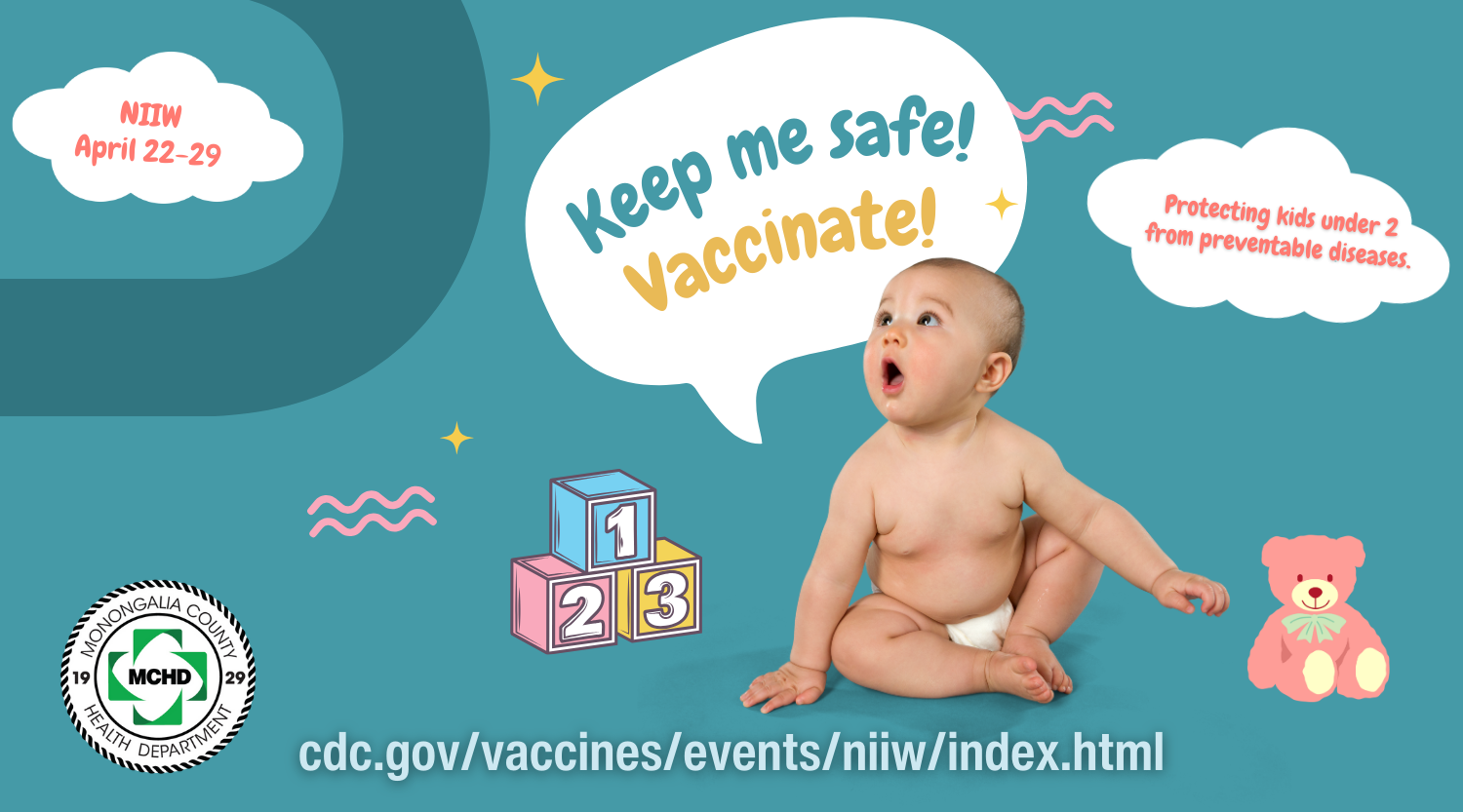Now is truly the time to talk about infant immunization

Apr. 24, 2024
By Mary Wade Burnside
When I first wrote about infant immunization after joining Monongalia County Health Department nearly seven years ago, I was able to state that many of today’s practicing physicians had never seen a case of measles.
While West Virginia had, until this week, remained measles-free because of strong vaccination laws, since 2019, there have been outbreaks in several states, including most of the ones that surround us.
A disease that had been declared eliminated from the United States in 2000 re-emerged less than 20 years later because of lax vaccination laws in other states.
Coincidentally, just as National Infant Immunization Week was about to get underway on Monday, a measles case was confirmed at WVU Medicine, the first in our state since 2009. Now Monongalia County Health Department is working to track down the potential 150-200 individuals who might have been exposed by this one case to alert them that they might have encountered this highly contagious disease.
As I noted back in 2018, in the 1950s, nearly every child eventually came down with a case of measles. Unfortunately, some died from the disease; others suffered severe symptoms. Polio was also known to hit children and adults back then as well. And now, you may have heard that a case of polio was diagnosed in New York in 2022.
But unlike back in the 1950s, thanks to immunizations, we can now protect infants and children from 14 vaccine-preventable diseases before the age of 2. According to the Centers for Disease Control and Prevention, routine childhood immunizations in one birth cohort prevent an estimated 322 million illnesses, 21 million hospitalizations and 732,000 early deaths over the course of this group’s lifetimes.
The measles vaccine requires two doses; the young adult who came down with measles only had one of them.
Established in 1994, National Infant Immunization Week provides the opportunity to highlight how successful vaccines have been and to remind parents that immunizations are an important part of raising a healthy baby. As we’ve noted, vaccines have been a victim of their own success, which downplays their importance in the minds of some younger parents who never had to worry about these diseases.
To learn more about infant immunizations, the CDC publishes an easy-to-read chart showing which vaccines babies should get, how many doses and when.
And more in-depth information can be found at this link.
The 10 immunizations and the 14 diseases they protect against are: hepatitis A & B, rotavirus, DTaP (diphtheria, tetanus and pertussis, or whooping cough), Hib (Haemophilus influenzae type b), PCV13 (pneumococcal disease), IPV (polio), flu (influenza), MMR (measles, mumps and rubella) and varicella (chickenpox). Babies can also get vaccines for COVID-19 starting at the age of 6 months.
NIIW is celebrated as part of World Immunization Week, an initiative of the World Health Organization (WHO). In addition to promoting immunizations, the goal also is to advance equity in the use of vaccines and universal access to vaccination services.
That’s where Monongalia County Health Department’s Clinical Services program comes into play. Through the Vaccines for Children Program (VFC), children ages 18 and younger can come to MCHD for immunizations if they meet certain criteria: If they are uninsured or underinsured because their insurance does not cover vaccinations or if they are American Indian or Alaskan Native.
Children who are enrolled in West Virginia Medicaid and West Virginia CHIP also qualify for this program. The Vaccines for Children Program is a federally-funded program that provides vaccines recommended by the Advisory Committee of Immunization Practices (ACIP) and approved by CDC.
If you have any questions or want to make an appointment, call MCHD Clinical Services at 304-598-5119. And remember: Your child’s vaccination plan is one of the most important schedules for you to keep.
Mary Wade Burnside is the public information officer at Monongalia County Health Department.